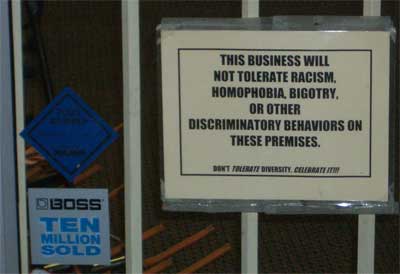
1. I wrote a sentence in my book about how depending on what country you’re in, you get a totally different view of the psychoacoustic research leading up to mp3 coding (though the concepts — masking, critical bands, etc., are all the same). Then Lucent (the fools who closed Bell Labs) won a suit against Microsoft. I’m sure it will be appealed, but still, it’s about exactly the same thing.
2. Seattle may be the pacific northwest and it may be known for lattes, but there is a mexican or texmex place on almost every corner . . . and an amazing number of vegetarian (many even vegan) restaurants. And surprisingly, the vegan donuts are even better than the famous ones.
3. This was our most social vacation ever. We saw friends and even ran into one (it turned out the Western States Communication Association was meeting while we were there. We did not attend.)
4. I did not use my umbrella at all in Seattle. As far as I can tell, almost nobody uses an umbrella. Also, we saw a lot more sun than we expected.
5. Nobody knows why everything closes so early in the evening there.
6. We saw no fish at the fish ladder. I love the concept of a ladder that was designed for animals with no arms or legs.

7. There was a nondiscriminatory music gear store. I’m not kidding: the Trading Musician. This would be cheesey, except that most music gear stores are stridently sexist and heterosexist climates. I almost bought a totally superfluous tabla drum machine. It sure was cool, but I’d need MIDI to make it worth my while.

8. Carrie learned that there are things called traffic wiggles.
9. Everyone talks about the vistas. Microsoft’s new operating system is called. . . coincidence? I think not!
10. My interviews went very well and I learned a new mantra. “Anyone who thinks the issue with digital audio is its discontinuity doesn’t understand the sampling theorem.” Of course, I don’t really understand the sampling theorem either, so I’d better get cracking.
11. I am so behind on my email.
Special America vs. Canada Supplement:
1. I saw this news story as I was on my way home. I think the “the alert level has been raised to . . . ORANGE” recording played at just around the same time at O’hare. Apparently, it’s always “just been raised” at O’Hare. I was happy to be headed home.
2. Carts to move your luggage around are $3 to rent at the Seattle airport. The wheels work great but they’re not very ergonomic. The same carts are available for free at Trudeau, but they are more ergonomic but have squeaky wheels. That’s a metaphor for something.
3. Why can’t McGill’s bookstore be more like the University of Washington’s? I love being able to go into a bookstore, browse the shelves, and actually have an idea of what’s new in fields related to mine. Strangely, when I am given the opportunity to browse large quantities of books in areas of interest to me, I buy more books.



